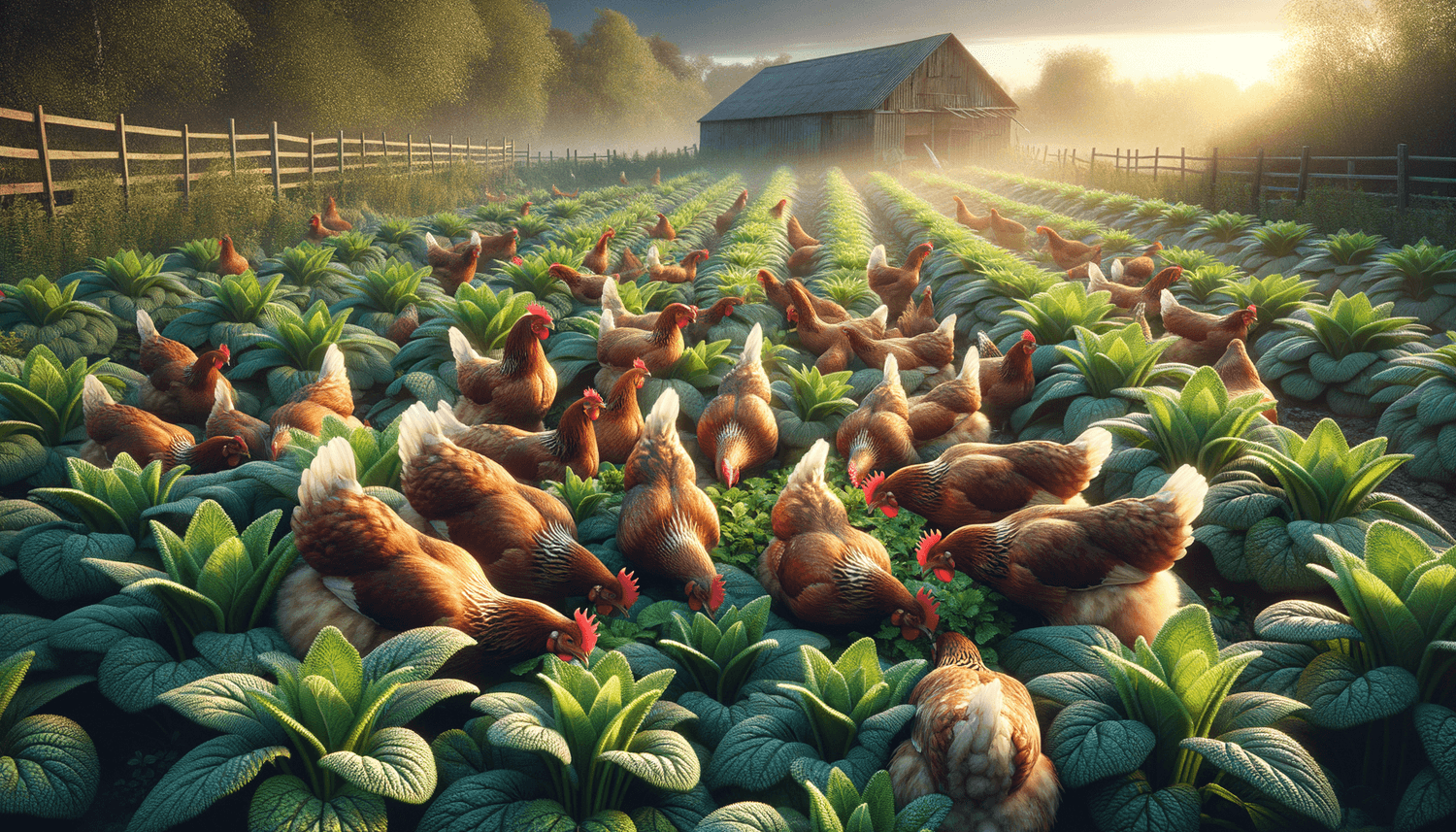Cluck, cluck! Let’s get ready to talk about something egg-citing and nutritious for our feathered friends. Can chickens eat comfrey? If you have been scratching around to find the perfect addition to your backyard flock’s menu, then buckle your nest box, because we’re about to jump into the world of comfrey! It’s time to explore whether chickens can munch on this power-packed plant, keeping in mind the importance of a balanced diet, and learning about the benefits and risks it might bring. And of course, we’ll share some egg-squisite tips on how to prepare comfrey for your beloved cluckers. So gather your flock and join this fun-fueled, coop-tastic adventure!
Can chickens eat comfrey?
Yes, chickens can eat comfrey, and it is safe for them in moderation. Comfrey is an excellent source of nutrients and can be a valuable addition to your chickens’ diet. Just be sure to introduce it gradually and monitor their consumption, as too much of a single food can disrupt their well-balanced diet.
A balanced diet for happy, healthy chickens
Just like humans, chickens require a diverse and balanced diet to maintain optimal health and well-being. For our feathered friends, the foundation of their diet should be high-quality chicken feed. This specially formulated blend of proteins, vitamins, and minerals makes up the majority of the nutrients they need for growth, egg production, and overall health.
High-quality chicken feed should constitute around 80-90% of your chickens’ diet. This ensures that they are receiving the essential nutrients and calories necessary for their steady development and wellbeing. But our clucky pals also deserve a little variety in their meals, which is why the remaining 10-20% can be allocated to tasty and nutritious treats like fruits and vegetables. These delights not only offer a delectable blend of flavors, but they also add pivotal vitamins and minerals which complement the chicken feed.
Nutritional value of comfrey for chickens.
Feeding comfrey to chickens offers various nutritional benefits, as this plant is packed with vitamins, minerals, and other essential nutrients. Comfrey contains a good amount of vitamins A, C, and B12, all of which can boost the immune system, vision, and nervous system of your chickens. These vitamins also contribute to healthy feather growth, a necessary feature for your backyard flock to stay cozy and comfortable.
Moreover, comfrey is rich in calcium and phosphorus, which are known to promote strong and healthy eggshells. This is important not only for the welfare of your chickens but also for the quality of the eggs they lay. Additionally, this nutrient-dense herb has trace elements, such as potassium and magnesium, that are vital to maintaining your chicken’s overall health and well-being.
Another advantage of feeding comfrey to your chickens lies in the plant’s high water content. This hydration boost can help keep your flock refreshed, especially during hot summer days when adequate water intake is crucial. Overall, incorporating comfrey into your chicken’s diet can enhance their health and add variety to their meals, making them happier and more content.
Nutrition table of comfrey for chickens.
| Information | Description |
|---|---|
| Nutritional Value | Rich in vitamins A, C, and B12, calcium, phosphorus, potassium, magnesium, and other trace elements. |
| Suggested Serving Size | A moderate amount, such as a handful of comfrey leaves mixed into their regular feed or a small bunch to forage on. |
| Safe Feeding Practices | Introduce comfrey in small, controlled portions to monitor digestion and avoid disrupting a balanced diet. |
| Preparation | Wash comfrey leaves thoroughly and chop or shred them before serving to the chickens. |
| Potential Risks | Overconsumption may lead to a disrupted, unbalanced diet or issues related to high levels of certain nutrients. |
| Hydration | Comfrey has a high water content, making it a beneficial source of hydration for chickens, especially on hot days. |
| Digestion | Comfrey is easily digestible by chickens, and the fibrous leaves can support healthy digestion. |
| Seasonal Availability | Comfrey is primarily available in the spring and summer months, with the best harvesting time being early summer. |
| Other Benefits | Boosts immune system, supports healthy feather growth, improves overall health and well-being, and adds variety to the diet. |
Grow and harvest comfrey in your backyard
You don’t have to go far to find comfrey for your chickens! Many backyard gardeners have found success growing and harvesting comfrey at home. This hardy, perennial herb can thrive in various soil types, sunlight, and temperature conditions. To grow comfrey, simply start with a few root cuttings or seeds, plant them in an appropriate location, and watch them flourish.
Comfrey grows relatively quickly, and you can typically harvest two to three cuttings per year. When harvesting, remember to wear gloves to protect your hands, as the leaves can have a slightly prickly texture. Cut the leaves about 2 inches above the ground and compost any damaged or yellowing leaves to maintain a healthy comfrey source for your chickens.
Offer comfrey and other plant options
While comfrey is a great addition to your chickens’ diet, make sure to offer them other plant-based options as well. Options like kale, spinach, and parsley are similarly nutritious and provide additional variety for your backyard flock. Make certain not to overfeed any one source of greens, as balance is crucial in maintaining a healthy diet for your chickens.
Final thoughts
Incorporating comfrey into your chickens’ diet can provide numerous nutritional benefits and keep your backyard flock happy and healthy. Remember always to introduce new food items gradually and to monitor your chickens for any adverse effects. With the right approach and attention to detail, comfrey can become a valuable component of your chickens’ diverse diets.

















